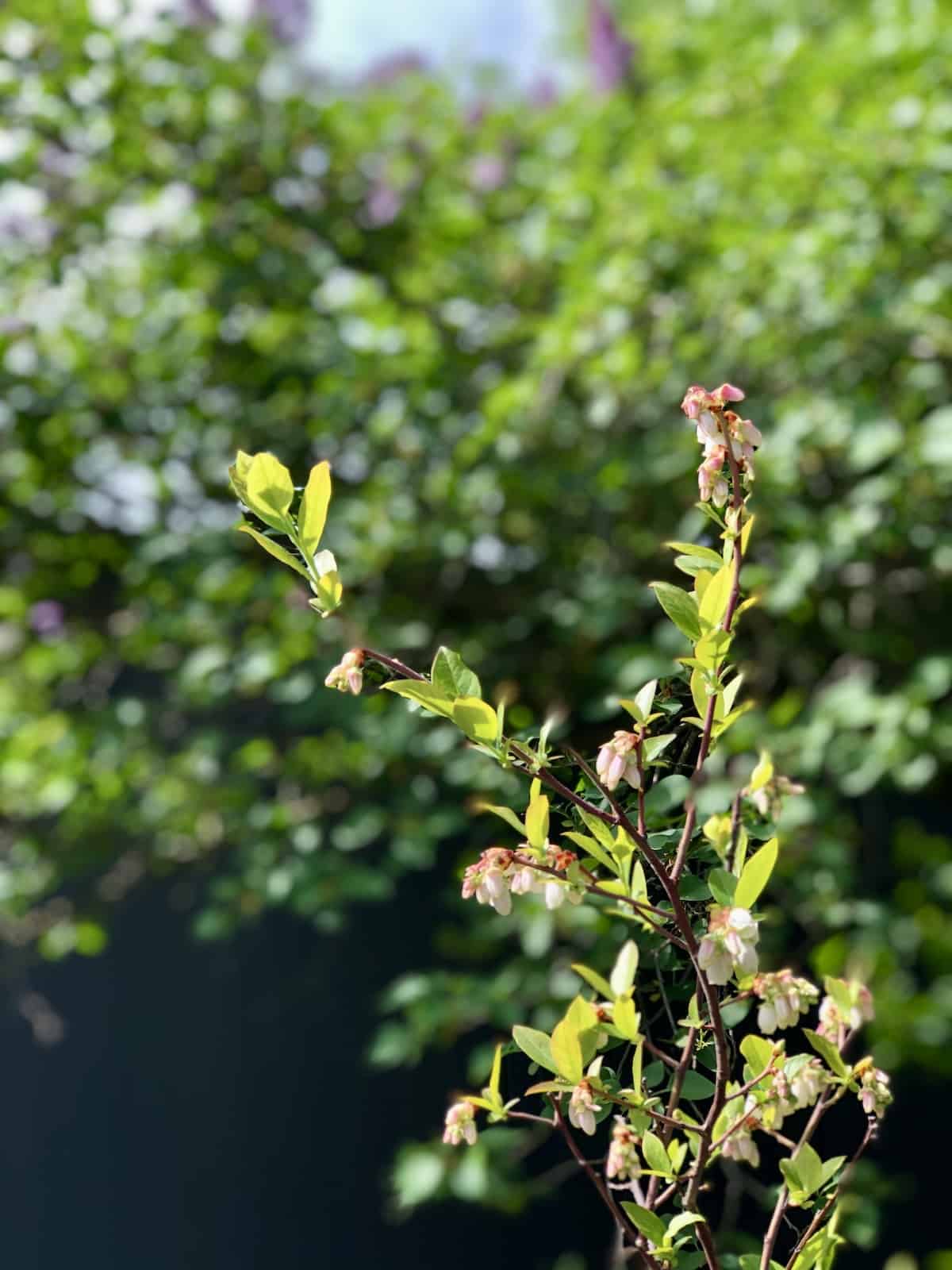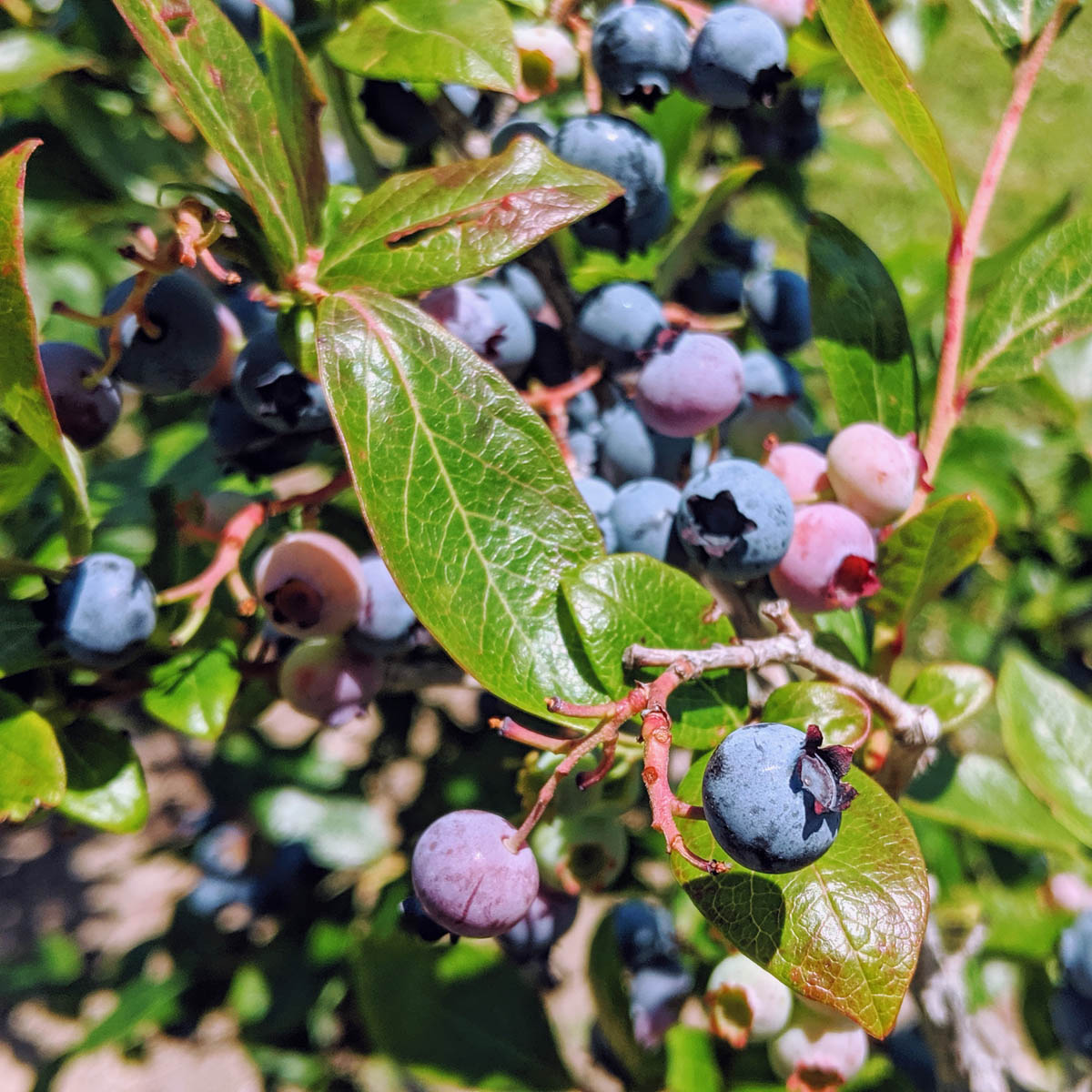The Ultimate Guide To Companion Planting For Blueberries
The Ultimate Guide to Companion Planting for Blueberries
Blueberries are a delicious and nutritious fruit that can be enjoyed fresh, frozen, or cooked. They are also a relatively easy plant to grow, but there are a few things you can do to help them thrive. One of the best ways to do this is to plant companion plants.
Companion planting is the practice of planting different types of plants together that benefit each other. There are many different benefits to companion planting, including:
- Improved pollination
- Increased pest and disease resistance
- Reduced need for fertilizers and pesticides
- Enhanced soil quality
- Increased biodiversity
When choosing companion plants for blueberries, there are a few things to keep in mind. First, you need to make sure that the plants have similar growing requirements. Blueberries prefer acidic soil, so you will want to choose plants that also prefer acidic soil. Second, you need to consider the benefits that you want the companion plants to provide. For example, if you are looking for plants that will attract pollinators, you might choose plants like lavender or mint. If you are looking for plants that will help to suppress weeds, you might choose plants like clover or buckwheat.
Here are some of the best companion plants for blueberries:
- Strawberries: Strawberries and blueberries have similar growing requirements, and they can help to improve each other's pollination.
- Clover: Clover is a nitrogen-fixing plant, which means that it can help to improve the nitrogen content of the soil. This is beneficial for blueberries, as they are heavy feeders.
- Basil: Basil is a fragrant herb that can help to repel pests such as aphids and spider mites.
- Thyme: Thyme is another fragrant herb that can help to repel pests. It can also help to improve the flavor of blueberries.
- Rhododendrons: Rhododendrons are acid-loving plants that can help to create a microclimate that is beneficial for blueberries.
- Azaleas: Azaleas are another type of acid-loving plant that can be a good companion for blueberries.
- Ferns: Ferns can help to suppress weeds and improve the drainage around blueberries.
- Wildflowers: Wildflowers can help to attract pollinators and add beauty to your garden.
When planting companion plants for blueberries, it is important to space them correctly. You should also avoid planting any plants that will compete with blueberries for water or nutrients.
By planting companion plants, you can help your blueberries to thrive and produce a bountiful harvest.
Blueberries are a delicious and healthy fruit that can be grown in many parts of the world. But did you know that there are certain plants that can help to improve the growth and productivity of blueberries? These companion plants can help to suppress weeds, attract pollinators, and improve the soil quality.
Some of the best companion plants for blueberries include strawberries, thyme, parsley, and basil. These plants all have different benefits for blueberries, but they all help to create a healthy and productive blueberry patch.
For example, strawberries help to suppress weeds and attract pollinators, while thyme helps to improve the soil quality. Parsley and basil can also help to attract pollinators, and they can also help to deter pests.
If you're looking to grow blueberries, I encourage you to do some research on companion planting. There are many resources available online and in libraries that can help you to choose the right companion plants for your needs.
One website that I recommend is Gardenia Inspiration. This website provides comprehensive information about companion planting, including a list of the best companion plants for blueberries.
FAQ of companions for blueberries
Q: What are some good companion plants for blueberries?
A: There are many good companion plants for blueberries, but some of the most popular include:
- Evergreen trees: Evergreen trees like pine, fir, spruce, juniper, and yew help to acidify the soil, which is ideal for blueberries. They also provide shade during hot summer days.
- Basil: Basil is a great companion plant for blueberries because it helps to repel pests and attract pollinators. It also has similar growing requirements to blueberries, so it won't compete for resources.
- Parsley: Parsley is another good companion plant for blueberries because it helps to attract pollinators and improve the flavor of the berries. It also thrives in slightly acidic soil.
- Dill: Dill is a great companion plant for blueberries because it helps to attract pollinators and repel pests. It also has similar growing requirements to blueberries, so it won't compete for resources.
- Rhododendrons: Rhododendrons are a great companion plant for blueberries because they also prefer acidic soil and attract pollinators. They can also help to provide shade during hot summer days.
Q: What plants should I avoid planting near blueberries?
A: There are a few plants that you should avoid planting near blueberries, including:
- Nightshades: Nightshades like tomatoes, peppers, and potatoes can stunt the growth of blueberries.
- Brassicas: Brassicas like kale, cabbage, brussels sprouts, and cauliflower can also stunt the growth of blueberries.
- Melons: Melons can compete with blueberries for water and nutrients.
- Salad greens: Salad greens like lettuce can also compete with blueberries for water and nutrients.
Q: How far apart should I plant blueberries?
A: Blueberries should be planted at least 3 feet apart. This will give them enough space to grow and spread.
Q: How do I know if I'm planting blueberries in the right spot?
A: Blueberries prefer full sun and acidic soil with a pH of 4.5 to 5.5. If you're not sure if your soil is acidic enough, you can test it with a pH kit.
Q: How do I care for companion plants for blueberries?
A: Companion plants for blueberries should be watered regularly, especially during hot, dry weather. They should also be fertilized with an acidic fertilizer in the spring.
Image of companions for blueberries
- Astilbe: Astilbe is a beautiful, flowering plant that can help to attract pollinators to your blueberry patch. It also helps to suppress weeds and improve the drainage of the soil.

- Coneflower: Coneflowers are another great choice for companion planting with blueberries. They help to attract pollinators and also help to deter pests.

- Daylily: Daylilies are a low-maintenance plant that can help to add some color to your blueberry patch. They also help to suppress weeds and improve the drainage of the soil.

- Hosta: Hostas are a shade-tolerant plant that can help to provide some shade for your blueberry bushes. They also help to suppress weeds and improve the moisture content of the soil.

- Raspberry: Raspberries are a great companion plant for blueberries because they have similar soil requirements. They can also help to attract pollinators and deter pests.

Post a Comment for "The Ultimate Guide To Companion Planting For Blueberries"